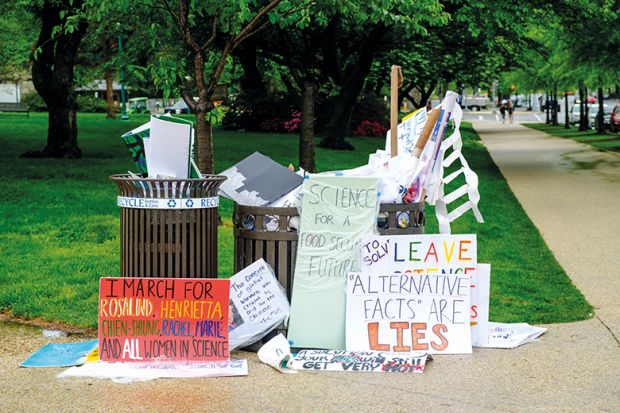Critics of a new code of conduct on protests at Lancaster University say it is “repressive” and should be reviewed.
The code has been operational since 1 February this year. It includes requirements to give a seven-day notice period ahead of any protest, to designate a “principal organiser” and to provide information about the planned protest on a form.
A PhD candidate in Lancaster’s department of sociology said that the “new repressive code” was passed “very secretively and without any meaningful discussion with students and staff”.
“As students we definitely see this as a threat to our freedom of expression,” she said. “Protest is known for its spontaneous action; this is like having to schedule a protest.”
The PhD candidate said that students who opposed the new plan were also “very concerned” about the idea of the principal organiser, seeing it as a way of “identifying a scapegoat if something goes wrong”.
She also criticised mentions of the university’s responsibility under the Prevent guidance “to have due regard to the need to prevent people being drawn into terrorism”.
“This creates the idea that it is normal to make a connection between peaceful protest on campus and terrorism, which it is not,” said the student. “This feels very much like US universities post 9/11 and it is not right.”
Lancaster’s University and College Union branch has also raised concerns about the new code, which it called “unnecessary, regressive and impractical”.
“This proposed policy includes specific provisions that are onerous and are likely – indeed, seem intended – to create barriers for those who wish to peacefully voice their dissent,” the union said.
The branch questioned why Lancaster was in a “small minority of UK universities” to have a code of conduct on protest and criticised the “arbitrary and pre-emptive character of the conditions in which the university reserves itself the right to prohibit” a protest.
These conditions include if a planned activity is judged to be unsafe or if insufficient guarantees can be provided that the protest will remain within the law.
A university spokeswoman said that a number of protests had occurred on campus since the new code was introduced, “without any issues about arrangements being raised”.
A draft of the code was sent to representatives of staff unions in December last year and discussed at a consultation meeting later the same month, she said.
“None of the issues now identified by UCU were raised at that meeting,” the spokeswoman continued. “As is the case with any policy, we are open to feedback and will periodically review policies in light of our experience in putting them into operation.”
The spokeswoman said that Simon Jennings, the university’s director of strategic planning and governance, had already met with students and had offered to have further discussion with UCU members.
Register to continue
Why register?
- Registration is free and only takes a moment
- Once registered, you can read 3 articles a month
- Sign up for our newsletter
Subscribe
Or subscribe for unlimited access to:
- Unlimited access to news, views, insights & reviews
- Digital editions
- Digital access to THE’s university and college rankings analysis
Already registered or a current subscriber? Login






